With summer comes a long list of jobs that need taking care of. But what if you’re gardening on a budget and can’t afford fancy fertilisers and topnotch tools? No matter what size your outside space, check out these easy, cost-effective tips to create a beautiful garden without breaking the bank.
Pest control on a budget
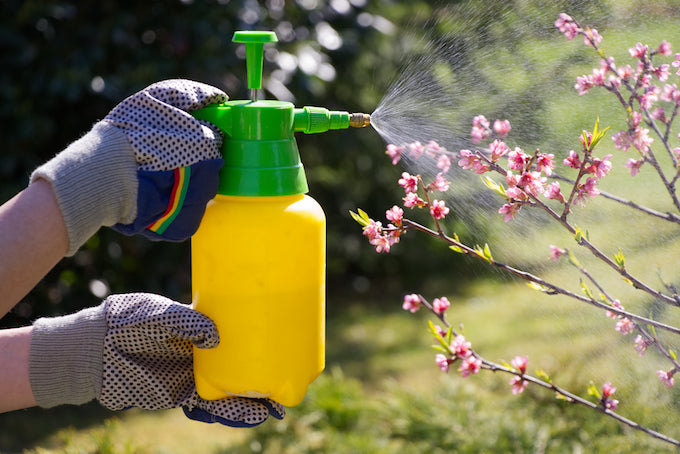
Image source: encierro/Shutterstock
Pesticides and insecticides can be expensive, but you can easily deter unwanted guests with a few common household items. It’s a clever way to keep plants healthy and costs down.
- Seedling fungicide spray Combine a litre of chamomile tea with a chopped clove of fresh garlic and spray onto seedlings.
- All-purpose insecticide spray Blitz 1 bulb of garlic and 1 small onion in a blender. Add 1 teaspoon of cayenne pepper powder. Steep the mixture for an hour in a pint of water. Strain, add 1 tablespoon of liquid soap and mix well. Store in a spray bottle in the fridge for up to a week.
- Coffee grounds Sprinkle used coffee grounds around your plants to deter slugs and cats. The good news? They also attract earthworms, who love their caffeine almost as much as we do!
In the greenhouse
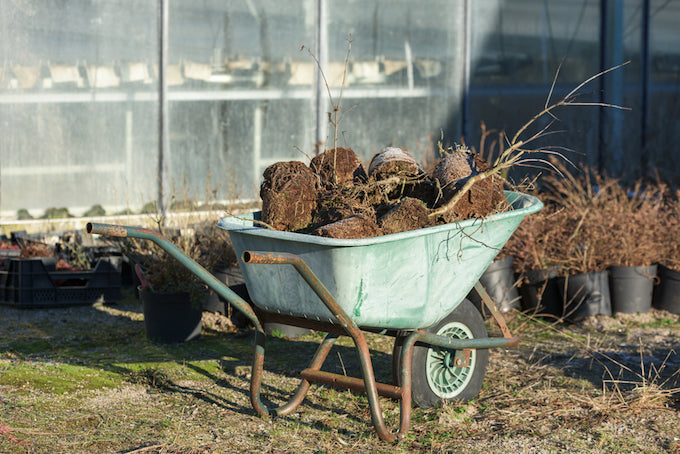
Image source: Imfoto/Shutterstock
Warm, damp greenhouses are an ideal breeding ground for pests. Simple elbow grease, soap and water are your first line of defence, and cost next to nothing apart from time.
Have a big clear out and remove any rubbish, weeds or dead plants to prevent vine weevil grubs finding places to hide. Give your windows a thorough wash.
Use a fungicide spray (or the homemade recipe above) on your seedlings. To protect against nefarious winged beasts like whitefly, place sticky traps near the top of your plants.
Finally, ensure that windows and doors are open to allow air to circulate. Move plants outside before it gets too hot and humid.
Companion planting
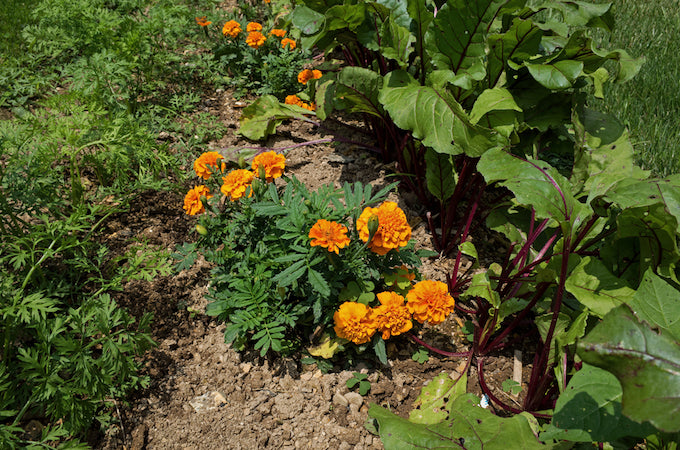
Image source: Michael G McKinne/Shutterstock
Companion planting is a traditional pest deterrent that puts specific plants and flowers - like marigolds, nasturtiums and basil - next to vegetables to discourage harmful pests. Companion planting also feeds and attracts beneficial insects, and provides shade for younger or frailer plants.
In your garden, grow strongly-scented plants like mint, chives and onion next to your carrots, as the smell deters pests like carrot root fly and flea beetles.
For vegetables like potatoes and cucumbers, marigolds feed important pollinators but deter harmful bugs like aphids, flea beetles and nematodes.
And dwarf zinnias planted alongside your cauliflowers will help lure harmful pests away from your crop.
Free fertiliser
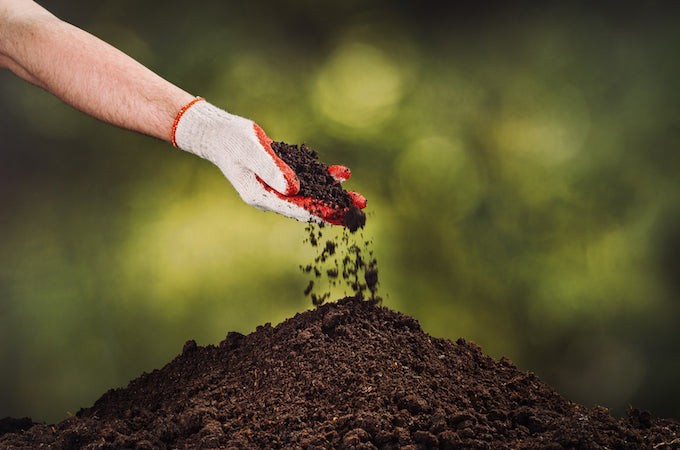
Image source: Wstockstudio/Shutterstock
Fertilising your plants will give them the nutrients they need to grow strong and healthy. Here’s how to create free fertiliser for your garden:
- Fill a large bucket with nettles and/or comfrey leaves.
- Weigh them down with a brick, top with water and cover for two weeks.
- Strain and dilute the end product – nine parts water with one-part liquid fertiliser.
- Water liberally on flowers as they’re establishing.
Re-use household items
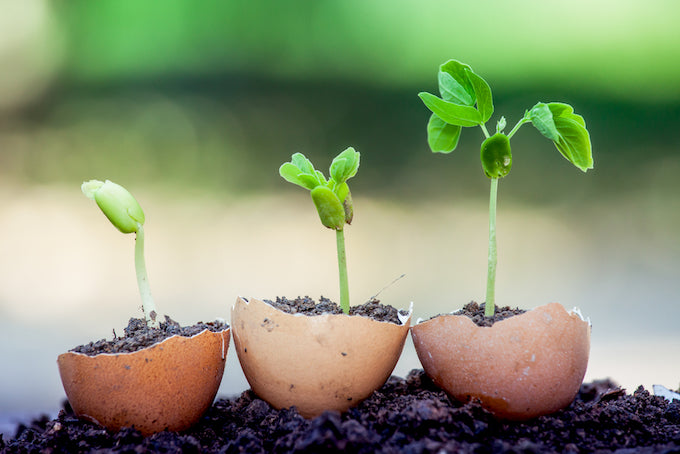
Image source: A3pfamily/Shutterstock
Upcycling is a great way to keep costs down in the garden. Re-use regular household objects with these crafty tips:
- Packed with nutrients, eggshells make great biodegradable seedling pots. Pierce a hole in the bottom and fill with compost. Add seeds, water and return to the egg carton for sprouting. Plant the entire shell out - it will biodegrade in the soil.
- Leftover lemon halves also make neat, biodegradable seedling starters.
- When you’ve finished boiling vegetables or eggs in the kitchen, pour the nutrient-rich water on your plants rather than down the sink.
- Hang old shower baskets on walls and fences to make free hanging baskets.
- Turn old milk cartons into watering jugs by making holes in the lid.
- Fill wine bottles with water and put them upside-down in soil to slowly drain and keep plants watered.
- Transform old tyres into planters. These planters are perfect for tender plants needing warm soil (rubber acts as a great insulator).
Look after your garden tools
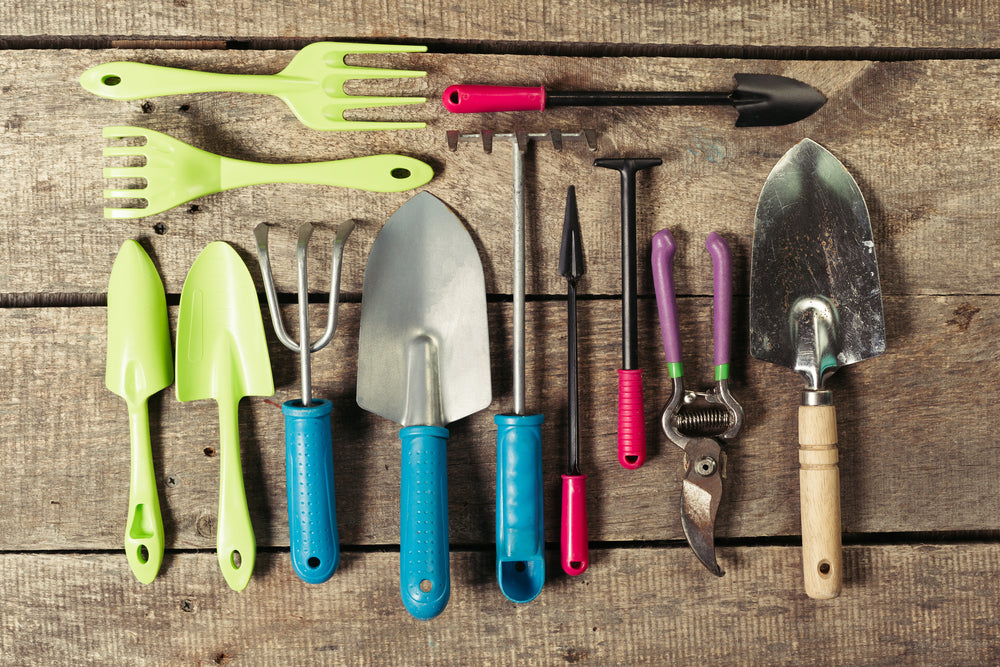
Image source: FabrikaSimf/Shutterstock
Don’t leave your tools strewn across the garden. This quickly leads to rust and rot, meaning they’ll need to be replaced more regularly. Our tip? Store your metal tools in pots of sand in your shed or garage. Push sharp edges into the sand (mix in a little oil if you have some), to absorb moisture and keep the tools sharp.
If your tools have wooden handles, rub with sandpaper to reduce the risk of splinters before applying a coat of olive oil to the wood. Allow to dry. This will prolong the life of your tools and keep them in fine working order.
Do you have any cheap garden tips to share? Let us know on our Facebook page. We’d love to hear from you!
Lead image: Shutterstock

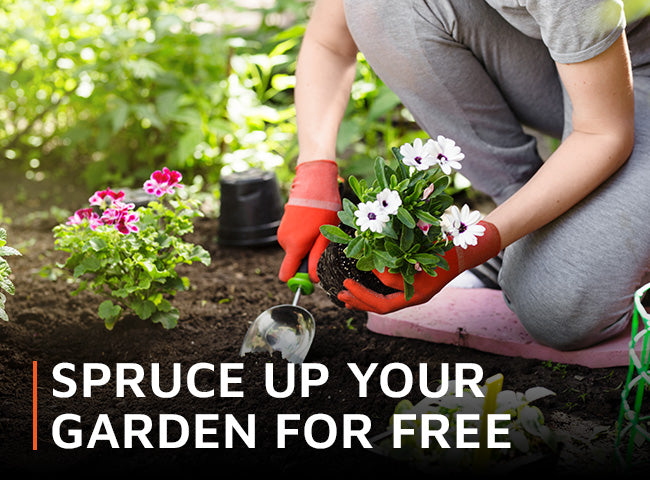

Share:
Wet Weather Garden Guide
How to plan your garden using Pinterest